Forever preserved: More than 1,000 acres of wild and working land in Southampton, Westhampton, Montgomery to be protected
| Published: 10-20-2023 5:21 PM |
SOUTHAMPTON — When Ed and Mary Hamel first bought their 80-acre property — now home to Glendale Ridge Vineyard — more than 30 years ago, the two expected to develop the land, even acquiring an approval to construct a bank.
But with expansive rolling hills and stunning views of Pomeroy Mountain, it didn’t take long for the couple to fall in love with the land and decide to keep it as a vineyard and open space.
Now, the Hamels’ land at Glendale Ridge is one of eight properties totaling more than 1,000 acres in Southampton, Westhampton and Montgomery to likely become permanently conserved as part of the Mountain Waters Project.
“We’ve always felt that this piece of property was special enough that it should be preserved,” said Ed Hamel.
The Mountain Waters Project, which the town of Southampton, Kestrel Land Trust and other groups have been working on for five or so years, this week received a $1.25 million grant from the state Executive Office of Energy and Environmental Affairs to purchase property and conservation restrictions.
Over the next two years, 1,025 acres of wild and working land in the three communities will become conserved, if all goes according to plan.
“It will protect open spaces; it will protect forests; it will protect people and the areas that are drinking-water-protection areas,” said Cindy Palmer, chair of Southampton’s Open Space Committee. “It will also protect iconic locations in our town, including our highest elevation at the summit of Pomeroy Mountain.”
The town will need to match 15% of the project that applies to Southampton-specific parcels, which totals around $420,000. The plan is for Community Preservation Act funds to cover that match, and that will require approval at a special Town Meeting to be scheduled before the end of the year.
Article continues after...
Yesterday's Most Read Articles
“This is a town of people who really value open space; they value conservation; and they value clean and good drinking water,” Palmer said.
Working with eight landowners, the Mountain Waters Project “looks at creating what would become the largest public conservation area in the town of Southampton,” said Bridget Likely, conservation manager at Kestrel Land Trust, which plays a central role in the project.
Palmer said there are variations in how the properties are being conserved, with some landowners choosing to remain owners of the land.
“In some cases, they’re very interested in having their property sold outright and a permanent conservation restriction put on it,” said Palmer. “In other cases, they wish to maintain ownership and have a permanent conservation restriction of some kind put on it.”
Under a conservation restriction, a piece of land cannot be developed. Some restrictions are also tailored to protect more specific values, like wildlife drinking-water protection or public access.
At Glendale, the Hamels will remain owners of the property, but half their land will fall under a regular conservation restriction, while the other half will be protected with an Agricultural Preservation Restriction, which is through the state.
Regular conservation restrictions through Kestrel will be placed on the rest of the properties in Southampton, and Mass Audubon will help Kestrel with another restriction in Westhampton, according to Likely. Mass Wildlife will also outright purchase a piece of land in Montgomery.
Altogether, the pieces of land, though not entirely connected to each other, are each connected to another conservation area.
“Conservation works better when it’s larger parcels,” said Palmer.
That’s because contiguous conserved land provides wildlife with more extensive habitat and greater potential to migrate and adapt.
“It’s really great that this land being covered includes a lot of large-impact forests surrounding both Pomeroy Mountain and Tighe-Carmody Reservoir,” Likely said, adding that the area includes “critical wildlife linkages” that reach the Berkshire Wildlife Linkage, the border to Canada, and a corridor of area forests.
“It’s also really important for protecting the waters that flow from the higher elevation areas into the reservoir and Barnes Aquifer,” she said.
Those areas provide clean drinking water to communities including Holyoke, Southampton, Easthampton and Westfield.
In addition to protecting environmentally important corridors and supporting clean drinking water, the project also opens up opportunities for expanded public recreation areas.
Mountain Waters Project is one of six projects awarded the grant from the Healey-Driscoll administration, which aims to protect and enhance large acreages of land across the state, as well as create additional recreational opportunities for the public.
“We’re investing to protect our forests and agricultural land while strengthening our communities,” Gov. Maura Healey said in a statement.
Energy and Environmental Affairs Secretary Rebecca Tepper said in a statement, “Our natural lands are the original carbon capturers and will serve as an important tool as we ramp up our efforts to reduce emissions.”
This year’s awards through the Landscape Partnership Grant Program, which was established in 2011, will conserve over 2,000 acres across Massachusetts, as part of the effort to build climate change resilience.
“This is going to be preserved forever,” said Ed Hamel, standing on a hill overlooking the vineyard. “There’s hiking trails, we have a youth bicycle group… That’s the kind of thing that we want to happen forever.”
Maddie Fabian can be reached at mfabian@gazettenet.com.

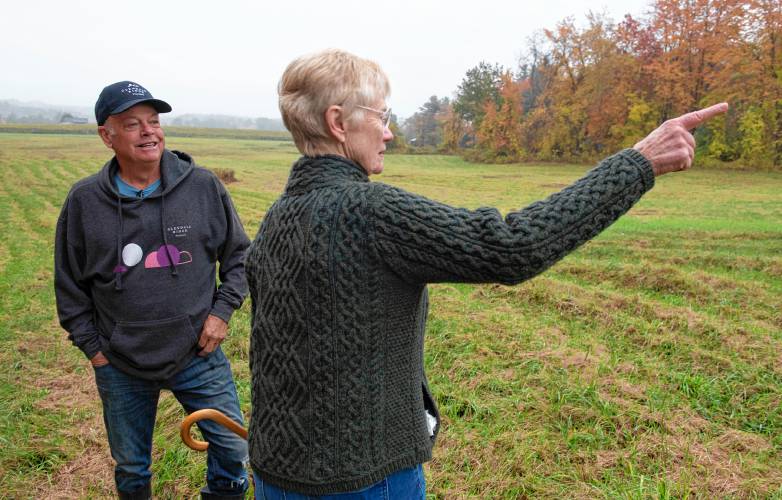
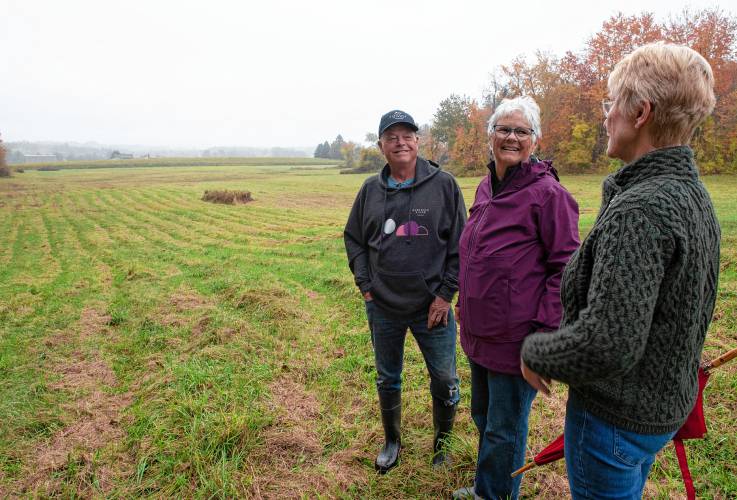
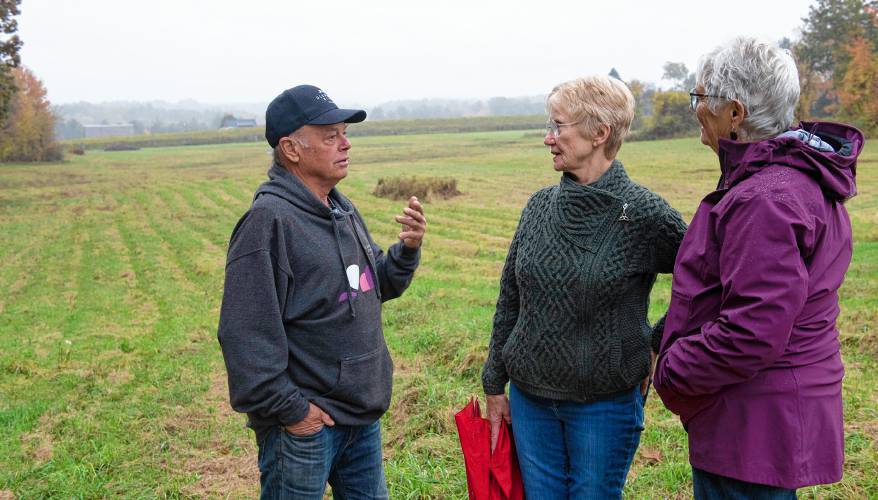
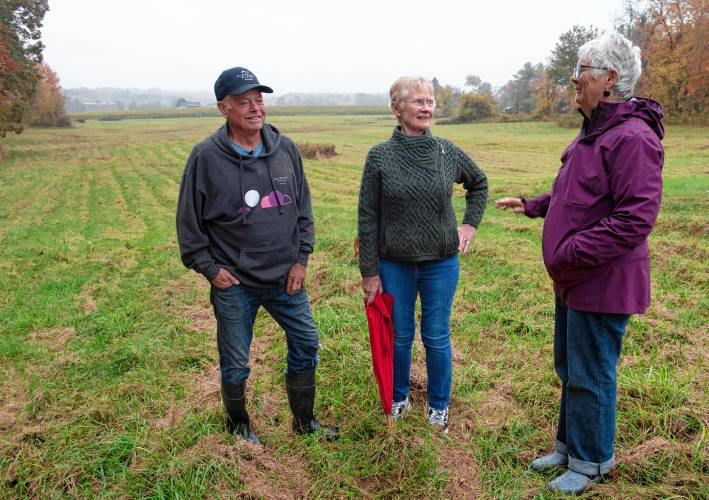
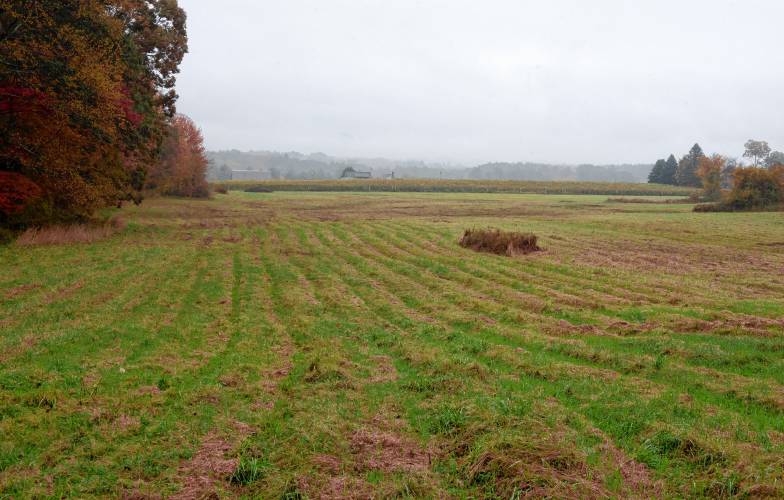
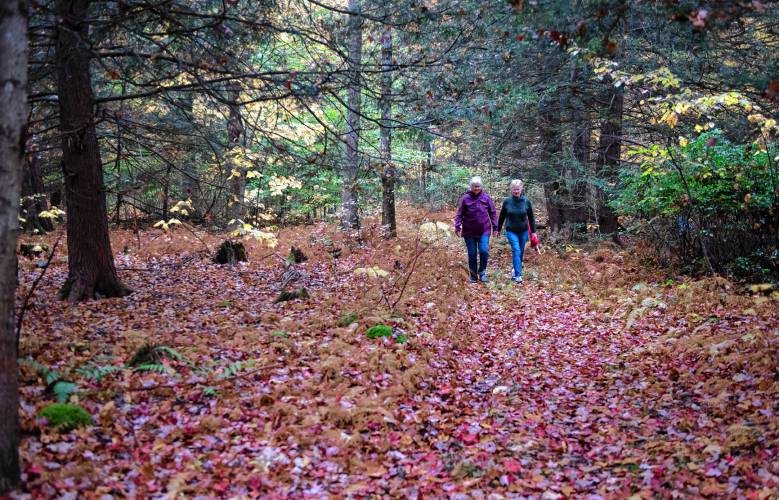
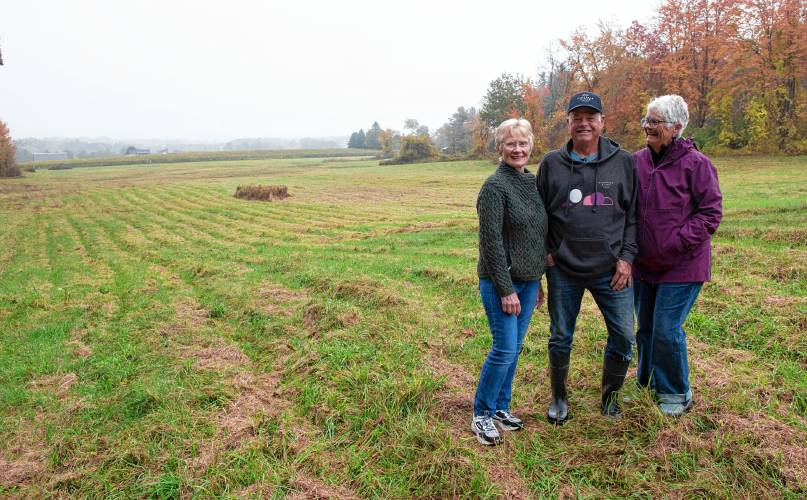
 State Senate budget funds free community college for all
State Senate budget funds free community college for all ‘We can just be who we are’: Thousands show support for LGBTQ community at Hampshire Pride
‘We can just be who we are’: Thousands show support for LGBTQ community at Hampshire Pride Doors open at Tilton Library’s temporary home at South Deerfield Congregational Church
Doors open at Tilton Library’s temporary home at South Deerfield Congregational Church Area property deed transfers, May 2
Area property deed transfers, May 2
